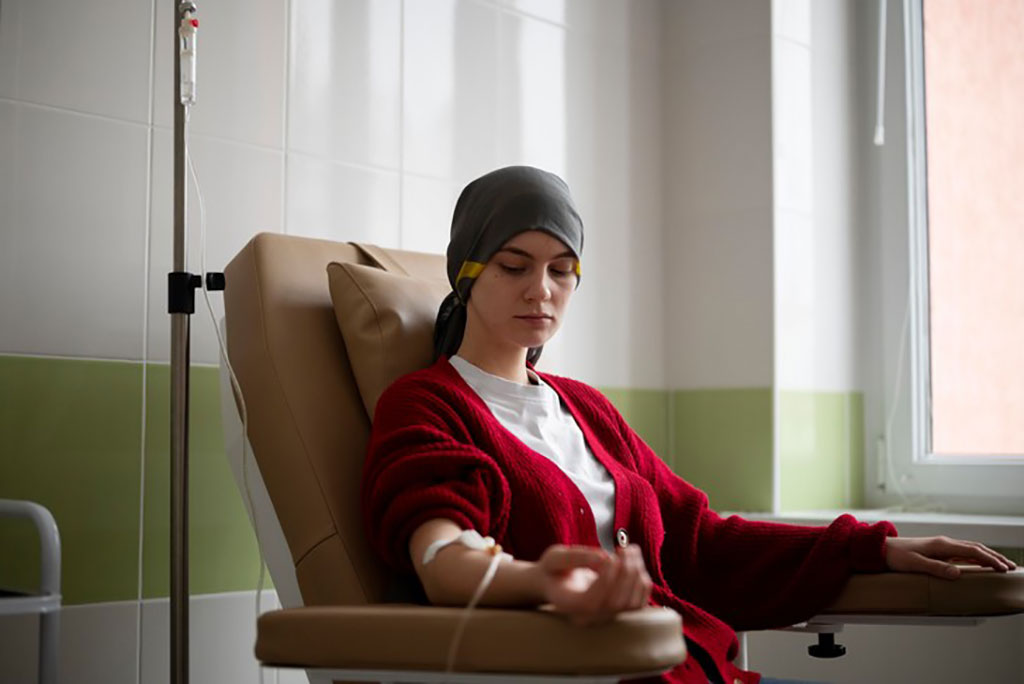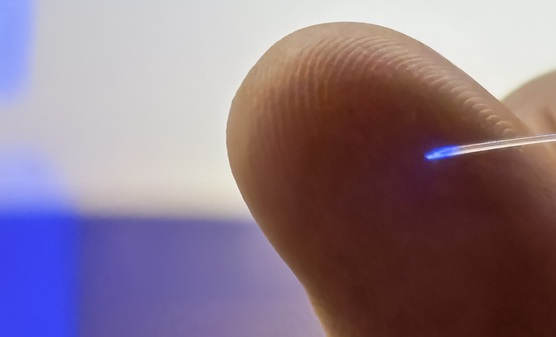Innovative Immunotherapy Treatment Demonstrates 90% Success Rate in Patients with Multiple Myeloma
|
By HospiMedica International staff writers Posted on 09 Jun 2023 |

Multiple myeloma, the second most prevalent blood cancer, has been notoriously resistant to treatment. Until a few years ago, the prognosis for this disease, accounting for one percent of all cancers and 10% of blood cancers, was a mere two-year average life expectancy. The disease's incidence is on the rise, with a projected 176,000 diagnoses worldwide in 2023. Now, a new ray of hope has emerged for those suffering from blood cancer, after nearly 90% of patients who underwent a novel immunotherapy treatment for multiple myeloma showed signs of improvement. Even more impressively, more than half - 57% - achieved remission. Clinical trials for this treatment, called CAR-T, or chimeric antigen receptor T-cell therapy, are set to commence soon in the United States.
CAR-T therapy utilizes a patient’s healthy cells to destroy the cancerous ones. It involves isolating a patient’s T-cells – the proactive cells of the immune system with the ability to fight tumors – using an apheresis machine that separates the blood into red and white cells. Through genetic engineering, a virus and a genetic fragment that encodes a receptor targeting the cancer cells are introduced. These modified cells are then produced in large numbers and reinfused into the patient, where they proceed to seek out and destroy the multiple myeloma cells.
The CAR-T treatment was developed at the Hadassah Medical Organization (New York, NY, USA) in collaboration with researchers at Bar-Ilan University (Ramat Gan, Israel). Immix BioPharma (Los Angeles, CA, USA) has acquired the patent rights to the therapy and plans to soon commence clinical trials in the US with FDA approval likely within a year. The revolutionary concept of harnessing a patient’s own immune system cells to fight cancer cells was first put forward several decades ago. Since then, researchers at the Hadassah Medical Organization have spearheaded the development and promotion of CAR-T. By manufacturing CAR-T at Hadassah, the medical center has managed to make this formerly prohibitive treatment accessible. As the first and sole institution in Israel to develop, produce, and deliver CAR-T treatment, Hadassah is pioneering a field that holds the promise of CAR-T therapies for other cancer types in the future.
“These are dramatic results and offer enormous hope for patients who have a disease that, to date, has been incurable,” said Polina Stepensky, MD, a hematologist-oncologist, pediatrician and stem-cell transplantation expert who directs Hadassah’s Bone Marrow Transplantation Department. “Until now, this treatment has only been available in China and the United States at a cost of nearly USD 400,000 per patient treatment. Only 20% of those who need to receive it in those countries actually get it.”
Related Links:
Hadassah Medical Organization
Bar-Ilan University
Immix BioPharma
Latest Critical Care News
- Specialized Dressing with Sensor Monitors pH Levels in Chronic Wounds
- AI Model Could Help Diagnose Spinal Cord Disease Up To 30 Months Earlier
- 3D-Printed Swallowable Robot Could Perform Gastrointestinal Procedures
- Next-Gen Hydrogel Could Transform Soft Tissue and Organ Repair
- Engineered Cancer Eating Bacteria Consume Tumors from Inside Out
- ‘Cyborg’ Transplants Could Replace Pancreatic Tissue Damaged by Diabetes
- Smartphone-Linked Catheter Sensor Spots UTIs Sooner Than Lab Cultures
- AI Tool Identifies Trauma Patients Requiring Blood Transfusions Before Reaching Hospital
- New Clinical Guidelines to Reduce Central Line-Associated Bloodstream Infection
- New Inhalable Treatment for TB Lowers Side Effects
- AI Algorithm Improves Antibiotic Decision-Making in Urinary Tract Infection
- 3D-Printed System Enhances Vaccine Delivery Via Microneedle Array Patch
- Whole-Heart Mapping Technology Provides Comprehensive Real-Time View of Arrhythmias
- Wearable Device for Diabetics Could Replace Continuous Glucose Monitoring Systems
- AI Stethoscope Spots Heart Valve Disease Earlier Than GPs
- Bioadhesive Patch Eliminates Cancer Cells That Remain After Brain Tumor Surgery
Channels
Artificial Intelligence
view channelSurgical Techniques
view channel
Brain Implant Records Neural Signals and Delivers Precise Medication
Neurological diseases such as epilepsy involve complex interactions across multiple layers of the brain, yet current implants can typically stimulate or record activity from only a single point.... Read moreAI-Based OCT Image Analysis Identifies High-Risk Plaques in Coronary Arteries
Lipid-rich plaques inside coronary arteries are strongly associated with heart attacks and other major cardiac events. While optical coherence tomography (OCT) provides detailed images of vessel structure... Read moreNeural Device Regrows Surrounding Skull After Brain Implantation
Placing electronic implants on the brain typically requires removing a portion of the skull, creating challenges for long-term access and safe closure. Current methods often involve temporarily replacing the skull or securing metal plates, which can lead to complications such as skin erosion and additional surgeries.... Read morePatient Care
view channel
Revolutionary Automatic IV-Line Flushing Device to Enhance Infusion Care
More than 80% of in-hospital patients receive intravenous (IV) therapy. Every dose of IV medicine delivered in a small volume (<250 mL) infusion bag should be followed by subsequent flushing to ensure... Read more
VR Training Tool Combats Contamination of Portable Medical Equipment
Healthcare-associated infections (HAIs) impact one in every 31 patients, cause nearly 100,000 deaths each year, and cost USD 28.4 billion in direct medical expenses. Notably, up to 75% of these infections... Read more
Portable Biosensor Platform to Reduce Hospital-Acquired Infections
Approximately 4 million patients in the European Union acquire healthcare-associated infections (HAIs) or nosocomial infections each year, with around 37,000 deaths directly resulting from these infections,... Read moreFirst-Of-Its-Kind Portable Germicidal Light Technology Disinfects High-Touch Clinical Surfaces in Seconds
Reducing healthcare-acquired infections (HAIs) remains a pressing issue within global healthcare systems. In the United States alone, 1.7 million patients contract HAIs annually, leading to approximately... Read moreHealth IT
view channel
EMR-Based Tool Predicts Graft Failure After Kidney Transplant
Kidney transplantation offers patients with end-stage kidney disease longer survival and better quality of life than dialysis, yet graft failure remains a major challenge. Although a successful transplant... Read more
Printable Molecule-Selective Nanoparticles Enable Mass Production of Wearable Biosensors
The future of medicine is likely to focus on the personalization of healthcare—understanding exactly what an individual requires and delivering the appropriate combination of nutrients, metabolites, and... Read moreBusiness
view channel
Medtronic to Acquire Coronary Artery Medtech Company CathWorks
Medtronic plc (Galway, Ireland) has announced that it will exercise its option to acquire CathWorks (Kfar Saba, Israel), a privately held medical device company, which aims to transform how coronary artery... Read more
Medtronic and Mindray Expand Strategic Partnership to Ambulatory Surgery Centers in the U.S.
Mindray North America and Medtronic have expanded their strategic partnership to bring integrated patient monitoring solutions to ambulatory surgery centers across the United States. The collaboration... Read more
FDA Clearance Expands Robotic Options for Minimally Invasive Heart Surgery
Cardiovascular disease remains the world’s leading cause of death, with nearly 18 million fatalities each year, and more than two million patients undergo open-heart surgery annually, most involving sternotomy.... Read more







.jpg)







